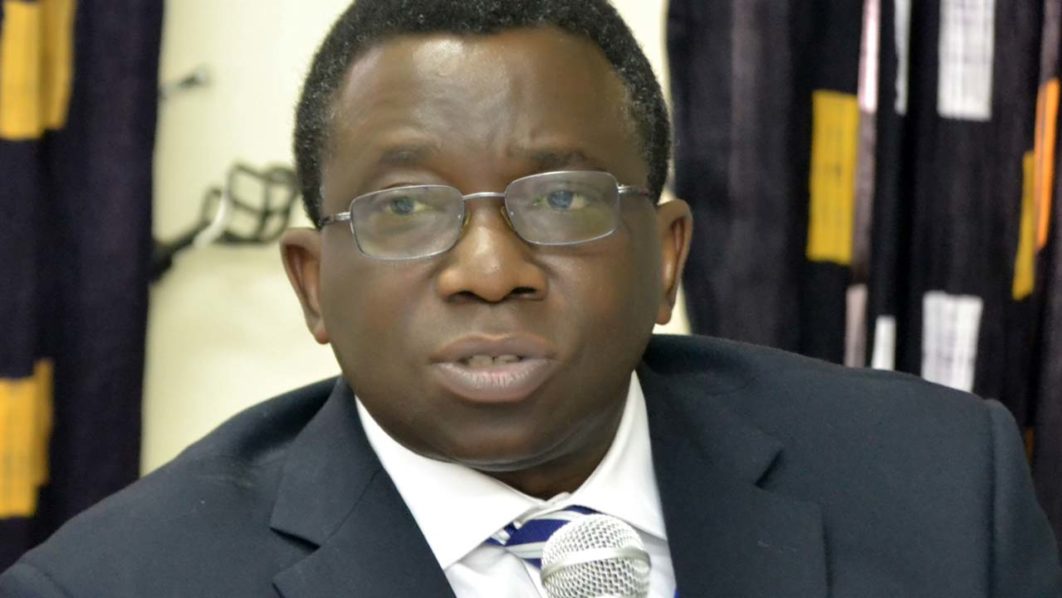The Federal Government said it has, in partnership with the World Diabetes Federation (WDF), established about 390 diabetes clinics in different parts of the country to address the growing problem of diabetes, which experts say, has assumed an epidemic proportion in Nigeria and several other countries in the world.In a speech to formally declare open the maiden edition of Sanofi Diabetes Summit in Lagos, the Minister of Health Prof. Isaac Adewole also disclosed that the government now has 175 clinics in place which are providing gestational diabetes mellitus (GDM) care and another 60 clinics providing Diabetes/TB care in the country.
The minister who was represented by the Chief Medical Director of the Lagos University Teaching Hospital (LUTH), Prof. Chris Bode in his paper titled ’The Emerging Epidemic of Diabetes Mellitus: A Call to Action,” decried the increasing incidence of diabetes worldwide.
He noted that there are five million diabetes and diabetes-related deaths yearly while every 10 seconds, a limb is amputated due to diabetes as the disease has become the most common cause of lower extremity amputation.
“From 100 million in1994 there are now 415 million people affected and projections for the future put the prevalence in 2030 at 642 million, most of the increase coming from Africa and Asia.
“Presently there are about 15 million diabetics in Africa and a quarter of this number resides in Nigeria. One in every 11 adults has diabetes and up to half of these are not diagnosed. Less than 10 percent of people diagnosed with diabetes meet the targets of metabolic control,” he said.
The minister lamented that people with diabetes often have shortened lifespan and 80% of them die of cardiovascular complications ranging from stroke, myocardial infarction, heart or kidney failure to foot gangrene.
“Unfortunately many of these lives are lost at the peak of their prime in the fifth or sixth decade of lives with the attendant devastating effect on the family unit or the nation as a whole,” he said.
He also noted that diabetes remains one of the costliest conditions to treat with expenses for some of the complications running into millions of naira per patient suffering from kidney failure, stroke, foot gangrene, ischaemic heart disease and retinopathy.
Seeing the magnitude of the diabetes problem in the country, the minister told the summit that the Federal Ministry of Health had to put in place an NCD Office, complete with staff and other resources along with a Diabetes Desk Officer.
In addition to the establishment of the diabetes clinic, the Minister disclosed that the ministry, also in collaboration with WDF and the state ministries of health had trained 7,500 doctors, nurses, paramedics and 740 HCPs in DM/TB.
Also, he disclosed, 44,700 patients had been reached, 760 awareness camps conducted, 11,000 patients screened for diabetic foot, 98,000 pregnant women screened for GDM, while 9,230 TB patients were also screened for diabetes.
He, however, called for leadership and action, especially, the kind being demonstrated by Sanofi, which he described as “a pharmaceutical giant with footprints in providing high-quality medications and devices for diabetes and other NCDs.”
He commended the company for the diabetes summit initiative and recalled several instances where the company had partnered Nigeria to promote effective diabetes care.
“They have partnered with the FMOH in drawing up national guidelines for clinical management of diabetes, screening programs, educational and research programs all targeted at improving diabetes care.
‘”Your great efforts are reflected in landmark studies such as the IDMPS studies, the e-diabetes program, the Diabetes Africa Foot Initiative are just some of the programs that have touched the lives of millions of Africans,” he told the company.
The Minister also told the Forum about one of the country’s leading tertiary institute, LUTH, which, he said, is playing a leading role in NCD management. He disclosed that diabetes patients occupy about 20-25% of beds in the medical wards which exerts a great toll on resources. LUTH has therefore invested in human capital to meet this challenge. It has expanded adult and pediatric clinics from two to four times a week.
“A fifth clinic has been approved with the zeal of the CMAC in ensuring diabetes and other endocrine diseases are well managed. We have new consultants also appointed to shore up the highly skilled consultant personnel. The hospital remains a hub for the training of pediatric endocrinologists in the PETCWA program many fellows of whom have graduated from.
“Many adult endocrinologists are also produced yearly. The hospital also boasts of a state of the art Acute Stroke Unit which is fully functional and operating. It’s the first of its kind in West Africa,” he noted while calling on Sanofi to do more in the area of education, prevention and healthcare initiatives of the FMOH in general and LUTH in particular.
Earlier in her welcome address, the General Manager/Country Chair, Sanofi Nigeria-Ghana, Ms Folake Odediran said Sanofi, as a global healthcare leader, is committed to preventing and treating diseases and supporting people around the world.
“Life is a health journey and 400 million adults are estimated to have diabetes, a lifelong condition. Sanofi is a partner of this health journey that aims to protect, enable, support people and patients with diabetes when it matters most so they can live life to its full potential.
“The summit exemplifies one of Sanofi’s partnerships with the Scientific and healthcare community aimed at building capacity, best practice sharing, and providing an avenue for consistency diabetes care.”
Odediran informed that the theme for this year’s maiden summit ‘DIABETES: New Management Trend towards improving outcomes,’ “underpins the imperatives for a new awakening and paradigm shift in diabetes care as well as the necessity to re-kit the healthcare personnel who is a critical partner in the patient’s health journey.”

 FAB FRESH6 days ago
FAB FRESH6 days ago
 LIFESTYLE7 days ago
LIFESTYLE7 days ago
 ENTERTAINMENT7 days ago
ENTERTAINMENT7 days ago
 FAB FRESH7 days ago
FAB FRESH7 days ago
 ENTERTAINMENT6 days ago
ENTERTAINMENT6 days ago
 MUSIC6 days ago
MUSIC6 days ago
 ENTERTAINMENT6 days ago
ENTERTAINMENT6 days ago
 ENTERTAINMENT5 days ago
ENTERTAINMENT5 days ago












































